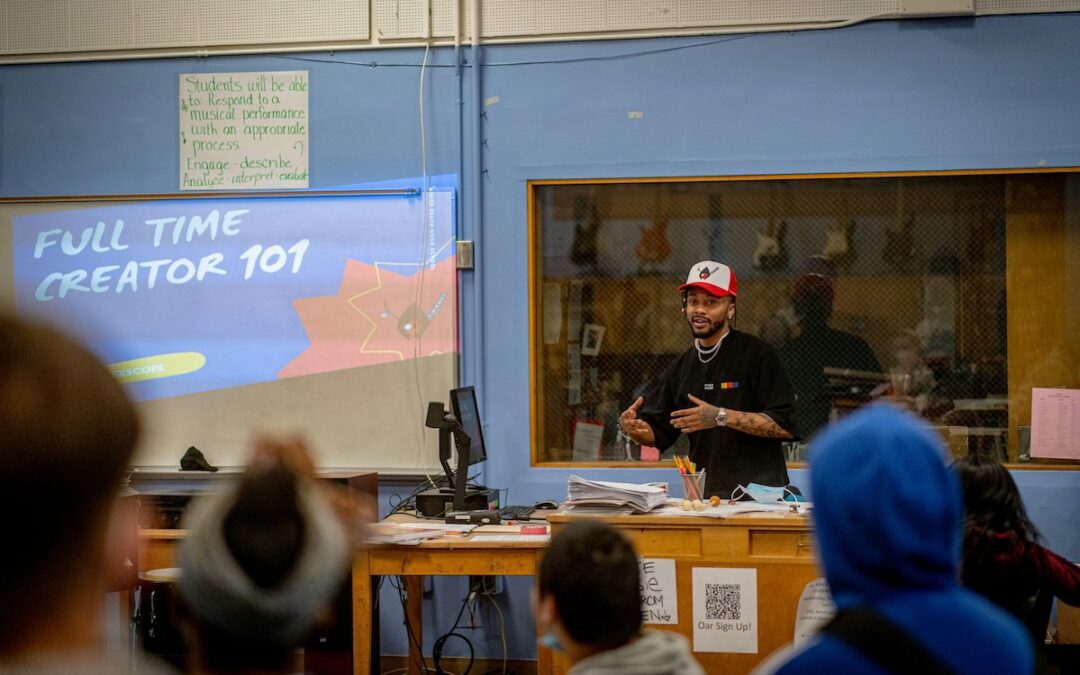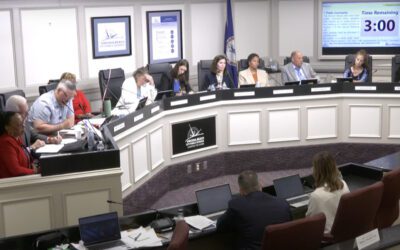
A teacher explaining a math problem to his class. (Max Fischer/Pexels)
Only a small percentage of people are inherently bad at math, says Professor Tanya Evans. But many struggle with anxiety due to a lack of math literacy.
Mathematics proficiency isn’t a genetic trait, but rather a skill that can be developed with proper guidance and support, according to groundbreaking research from the University of Virginia. Despite common misconceptions about mathematical ability being innate, experts are discovering that math anxiety and cultural attitudes play a significant role in how people perceive and perform in mathematics.

Breaking down the myth of being “bad at math”
Tanya Evans, associate professor at the University of Virginia’s School of Education and Human Development, challenges the widespread belief that some people are naturally poor at mathematics. As a developmental cognitive neuroscientist, she has observed how society’s approach to mathematical difficulties differs dramatically from reading challenges.
“When children or adults struggle with learning to read, the response is, ‘You can do this, and we will teach you how.’ But with math, it’s more of ‘Oh, you’re just not good at math,’ and that’s the end of it. It’s just accepted,” Evans explains to UVA Today.
The impact of math anxiety on learning
Research reveals that math anxiety can be transmitted from parents and teachers to children, creating a cycle of mathematical avoidance. Evans points out an interesting disparity in early childhood development guidance: “Pregnant women see signs in the doctor’s office telling them to read to their children every day and sing songs to them every day, to help with their learning. But no one says to talk about math with your kids every day.”
Understanding how math skills develop
Evans and her colleagues, including researchers from Vanderbilt University and Georgetown University, are conducting a comprehensive study of 109 elementary school students across three grade levels. Their research aims to identify the fundamental skills that contribute to mathematical learning by comparing declarative memory (fact-based learning) with procedural memory (skill-based learning).
The importance of mathematical literacy extends far beyond the classroom. “You need both skills throughout your life. You need to read, but you also need to make budgets, pay your bills and manage medication schedules,” Evans notes. “There are numbers all around us, and when you’re uncomfortable with them, it makes life more difficult.”

Virginia public schools had more than 3,200 unfilled teaching positions in 2024-25
Something’s missing in Virginia classrooms—and it’s not just school supplies. According to the Virginia Department of Education Teacher Vacancy...

Botetourt County Public Schools reinstated random student drug testing
A previously paused policy is back in Botetourt—here’s what it means for students signing up for extracurriculars and parking permits. Following a...

Phones off: Hanover Schools’ policy results in 1,600+ confiscations
One school division went all-in on unplugging during the day—and the results are in. Over 1,600 mobile devices were confiscated at Hanover County...

New federal loan limits could derail Virginia students’ path to medical school
This story by Shalina Chatlani was produced by Stateline and reviewed and distributed by Stacker. Twenty-eight-year-old Michaela Bonner has been...

Public school defender Ghazala Hashmi takes on right-wing radio’s Reid for lieutenant governor
Sen. Ghazala Hashmi, a mom of two daughters, is clear about the choice Virginians face when they go to the polls this November. Do they want to...

The Spanberger strategy: Can this Virginia Democrat reset the politics of public education?
This story was originally reported by Mel Leonor Barclay of The 19th. Meet Mel and read more of her reporting on gender, politics and policy. During...





